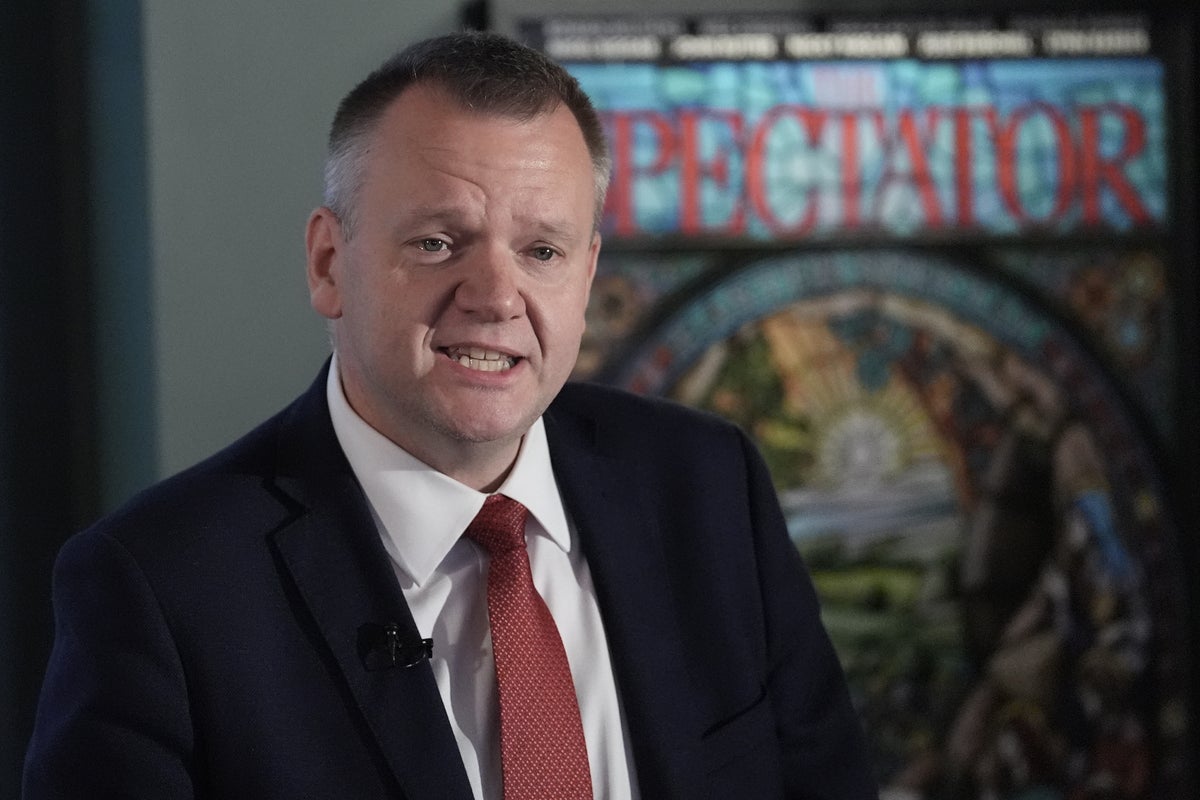Nick Thomas-Symonds, the minister for European Union relations, was sent into the den of Leaverdom on Wednesday. He talked about the government’s plans to ease trade with Britain’s neighbours in a speech at The Spectator and in conversation with Michael Gove, the magazine’s editor and co-leader of the Brexit campaign in the referendum nine years ago.
Much of the speech was devoted to an attack on Nigel Farage, who has dominated the news agenda for much of the summer, and who is the main threat to Labour’s hopes of re-election in four years’ time. Thomas-Symonds accepted that Reform is the “real opposition” – because “the Conservative Party is just not on the pitch”.
What did Thomas-Symonds say about Farage?
The Cabinet Office minister had a dig at Farage’s cushy pension as a former member of the European parliament before accusing him of the politics of division: “Aside from his pension packet, Nigel Farage can’t bring himself to have any relationship with the EU. Unable to recognise what is actually the best choice for working families across Britain but also because Nigel Farage wants Britain to fail. His model of politics feeds on it. When British businesses fail, when family bills go up, he offers the easy answers, dividing communities, stoking anger. We reject that. Emphatically.”
But there were limits to how far Thomas-Symonds was prepared to go in rejecting Farage’s choice of words. Invited to condemn the use of the term “invasion” to describe asylum seekers arriving in Britain, the minister said: “We all use our own language – I wouldn’t use Nigel Farage’s language.”
Why is Thomas-Symonds doing this now?
His speech has been in the government’s planning grid for some time, possibly as an attempt to set the news agenda while the prime minister and home secretary are taking a break.
But it seems a strange time to be trying to take the credit for a renegotiation of the EU-UK trade deal that was agreed in principle in May and which will not be completed until next year (“by 2027”, Thomas-Symonds said in his speech).
The government hopes that the detailed negotiations will mean cheaper cheese and olives before the next election, and Thomas-Symonds kept trying to return to the tangible benefits of cheaper food, but these gains are all still some way off. Warning that Reform is a threat to benefits that have not yet been agreed is asking British voters to take a good deal on trust.
Meanwhile, Thomas-Symonds found himself on the morning media round on the day that higher electricity and gas prices were announced, claiming that the government’s promise of £300 off energy bills would be delivered eventually.
What did he say about Farage’s plan for mass deportations?
Thomas-Symonds said it was “unrealistic and irresponsible” to renegotiate the Good Friday Agreement, which Farage has claimed he would do to allow Britain to scrap the European Convention on Human Rights. That would “not be received favourably” by Britain’s allies, Thomas-Symonds said.
“A comment like that just simply shows that Nigel Farage produces unrealistic promises that solve problems.”
Thomas-Symonds doubted Farage’s ability to secure deals to return migrants with the governments of Afghanistan and Iran: “He was also talking about negotiating with hostile regimes around the world. He’s struggling to negotiate the politics of a parliamentary party that can fit in the back of a taxi.”
However, the minister also had to distance the government from suggestions from Labour former home secretaries Jack Straw and David Blunkett that Britain should “decouple” or disapply parts of the ECHR. That would put Britain in the same category as Belarus and Russia, Thomas-Symonds said, and make it harder to tackle illegal migration.
Is this a rerun of the Brexit campaign?
Neither side wants to rehearse the arguments of the 2016 referendum. Thomas-Symonds insisted that rejoining the EU single market or customs union is still out of the question. But, he said, “Britain had choices after Brexit; Britain still has choices now.”
He added: “Without reopening freedom of movement, we can still build a valuable relationship with the European Union that genuinely benefits Britain.”
He knows that public opinion favours a closer relationship with the EU, but is allergic to any suggestion that “more EU” is the solution to the small boats problem. In the latest poll, he said, “over 60 per cent of the public want a close economic relationship with the EU – and public support for a youth mobility scheme with the EU is over 70 per cent”.
